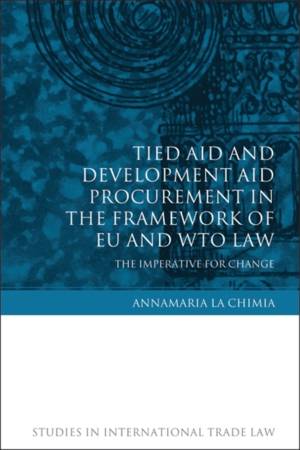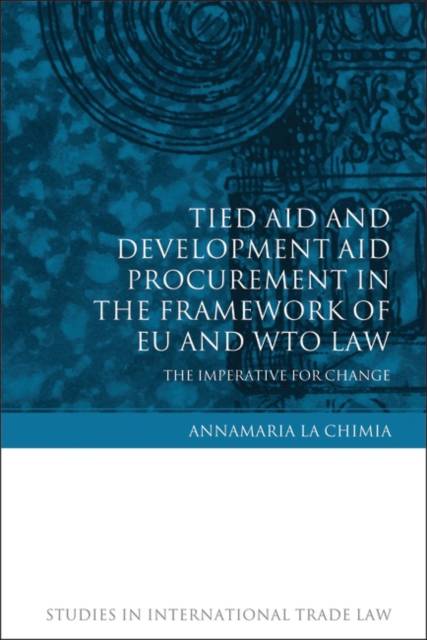
- Afhalen na 1 uur in een winkel met voorraad
- Gratis thuislevering in België vanaf € 30
- Ruim aanbod met 7 miljoen producten
- Afhalen na 1 uur in een winkel met voorraad
- Gratis thuislevering in België vanaf € 30
- Ruim aanbod met 7 miljoen producten
Zoeken
Tied Aid and Development Aid Procurement in the Framework of Eu and Wto Law
The Imperative for Change
Annamaria Lachimia
€ 244,95
+ 489 punten
Omschrijving
Tied aid refers to aid that is granted to developing countries on the condition that goods and services for the aid-financed projects are purchased from the donor country only. The recipient country, in order to receive the grant or the loan, has no other choice but to fulfill the condition imposed by the donor. Economists have shown that tying aid undermines the effectiveness of aid. It leads to higher costs paid for the goods and services purchased and the distortion of the nature of the aid. Further, tying aid frustrates aid's potential in fostering trade between developing countries. In many of these countries, public bodies and, in particular, aid-financed projects are major potential outlets for trade between neighboring States. The importance of tied aid has been pointed out in economic literature, but there is surprisingly little written on the legal aspects of tied aid practices. This book is the first legal treatment of tied aid and examines in detail the compatibility of tied aid with EU and WTO law. The workings of the aid projects and aid procurement systems of donor countries granting bilateral aid are fully examined through case studies from the US, the UK, Italy, and the EU. (Series: Studies in International Trade Law - Vol. 15)
Specificaties
Betrokkenen
- Auteur(s):
- Uitgeverij:
Inhoud
- Aantal bladzijden:
- 488
- Taal:
- Engels
- Reeks:
- Reeksnummer:
- nr. 15
Eigenschappen
- Productcode (EAN):
- 9781849461153
- Verschijningsdatum:
- 7/10/2013
- Uitvoering:
- Hardcover
- Formaat:
- Genaaid
- Afmetingen:
- 156 mm x 234 mm
- Gewicht:
- 857 g

Alleen bij Standaard Boekhandel
+ 489 punten op je klantenkaart van Standaard Boekhandel
Beoordelingen
We publiceren alleen reviews die voldoen aan de voorwaarden voor reviews. Bekijk onze voorwaarden voor reviews.








